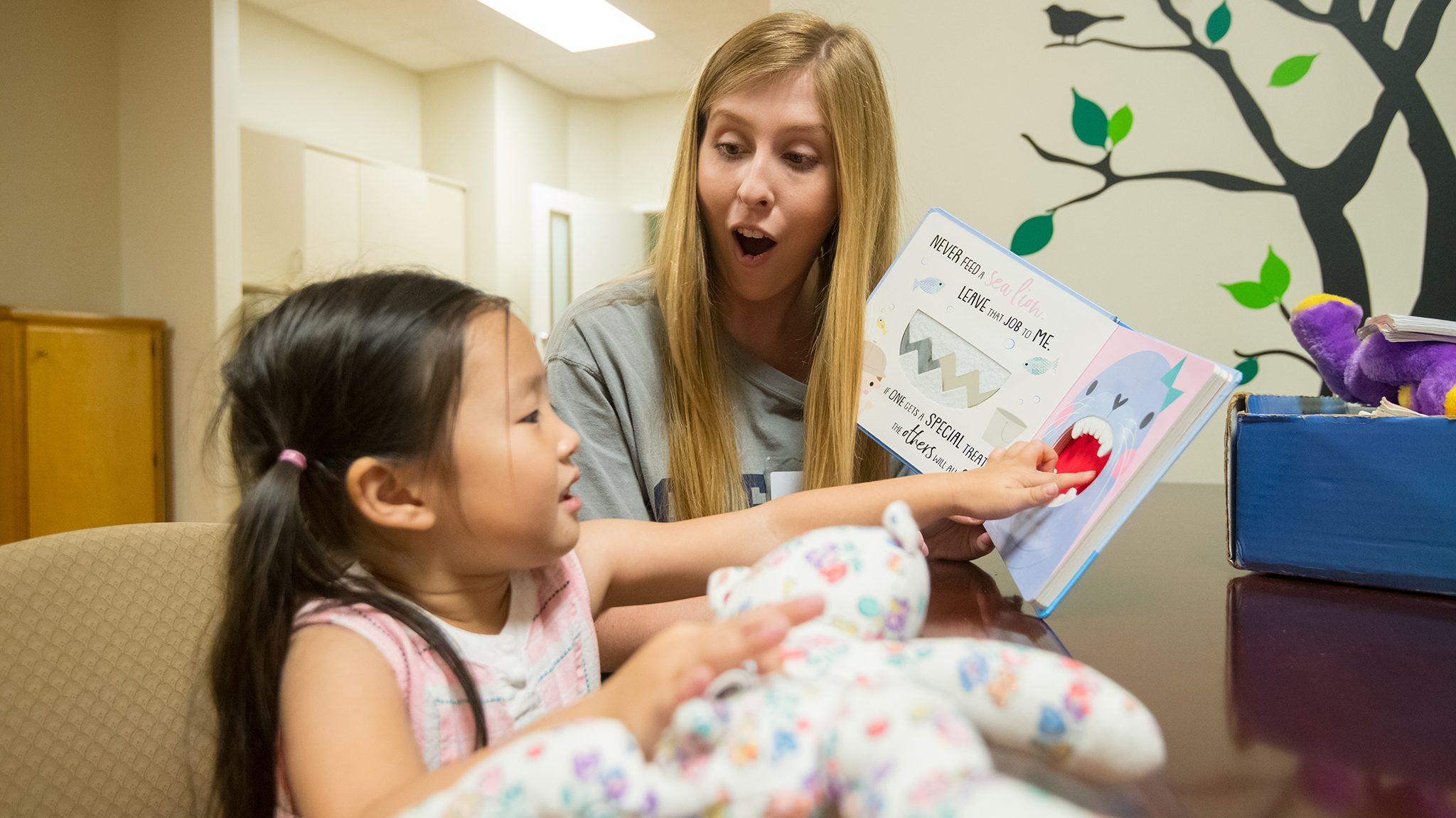
UM graduate clinician Emily Watkins (right), of Pontotoc, reads to a young client during speech-language pathology clinical training. Without face-to-face therapies, parents of children with learning and language disorders can use tips and online resources provided by the Department of Communication Sciences and Disorders. Photo by Kevin Bain/Ole Miss Digital Imaging Services
OXFORD, Miss. – With millions of families adjusting to a “new normal” at home with children out of school, those children with language or learning disorders are disproportionately affected by the disruption to their daily routines.
Faculty members in the University of Mississippi‘s Department of Communication Sciences and Disorders provide intensive language therapy for young children with moderate to severe language disorders, including children with receptive and expressive language delay, hearing impairment, Down syndrome and autism spectrum disorder.
During the COVID-19 crisis, parents of children with language and learning disorders confront two major challenges without access to face-to-face resources, said Amanda deVera, a speech-language pathologist and instructor.
“The biggest challenges are staying consistent with a schedule that incorporates goal-oriented tasks and activities that require one-to-one attention to demonstrate and teach skills that are difficult,” deVera said. “They also just have to stay on a schedule – at home, day after day.”
DeVera suggests that continued therapy is necessary to avoid regression and maintain current levels of success. She offered these general recommendations for parents facing isolation with their children living with language or learning disorders:
- Use pictures to develop a consistent routine/schedule and follow it daily.
- Post and label routines and common items used daily.
- Remember, play is their work, so play developmentally appropriate games.
- Have consistent expectations and reinforce successful attempts and redirect less successful attempts.
- Parallel talk daily activities: Verbalize what your child is seeing, hearing or doing. Don’t ask questions – just model language. If a child is playing with blocks, a parent might say, “I like how you are building a tower. You started with a blue block and added a red block. Let’s see how many blocks there are: one, two, three, four, five blocks.”
- Most importantly, read to your children.
Besides these general guidelines, faculty members have compiled online resources that can help parents navigate home therapy for children with learning, language, hearing and swallowing disorders during shelter-in-place recommendations from officials.
The School of Applied Sciences, home to the Department of Communication Sciences and Disorders, offers professional preparation programs that integrate academic study, clinical training, creative research, service-learning and community outreach, leading to the development of leaders whose professional endeavors will improve health and well-being.